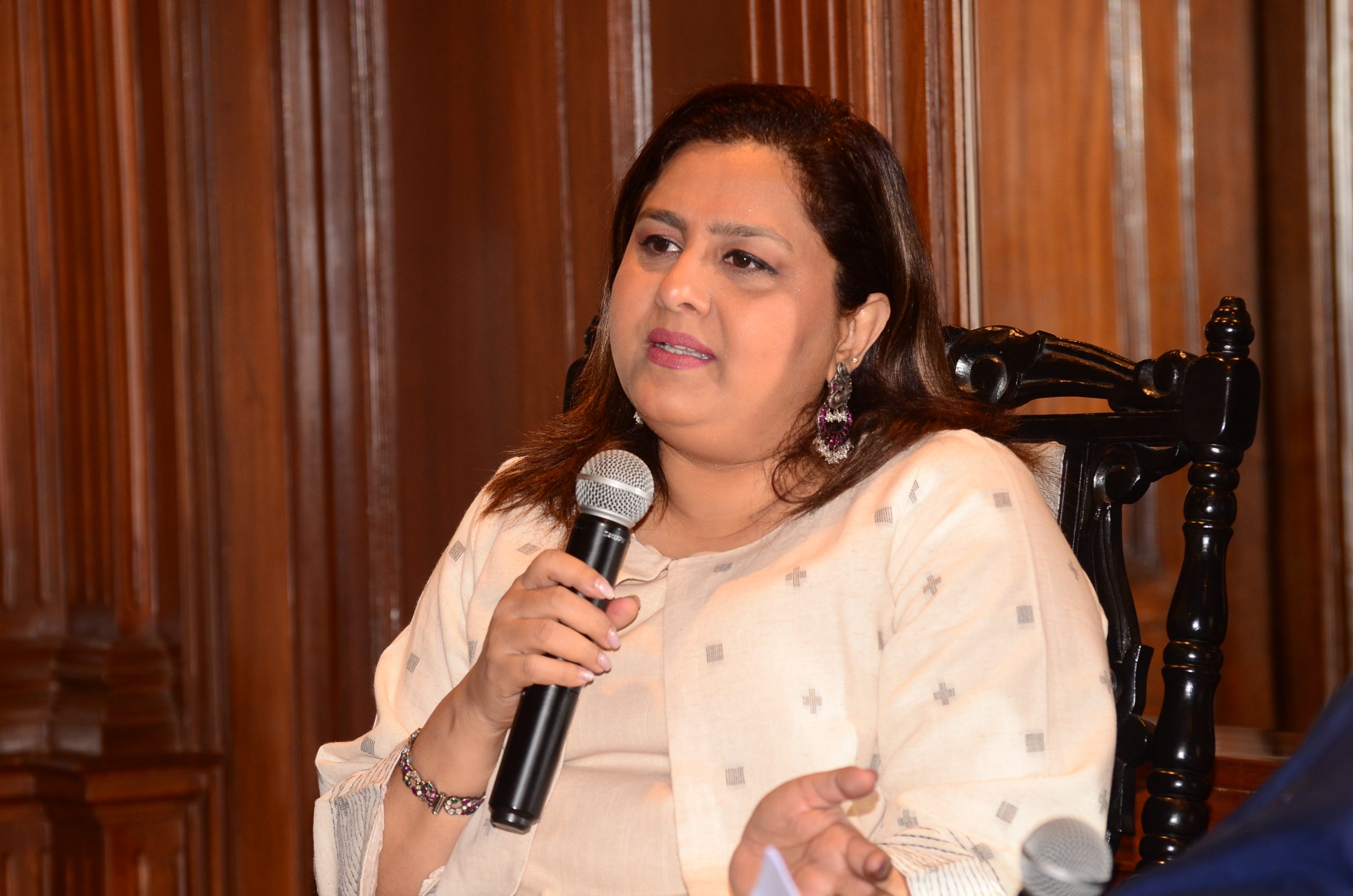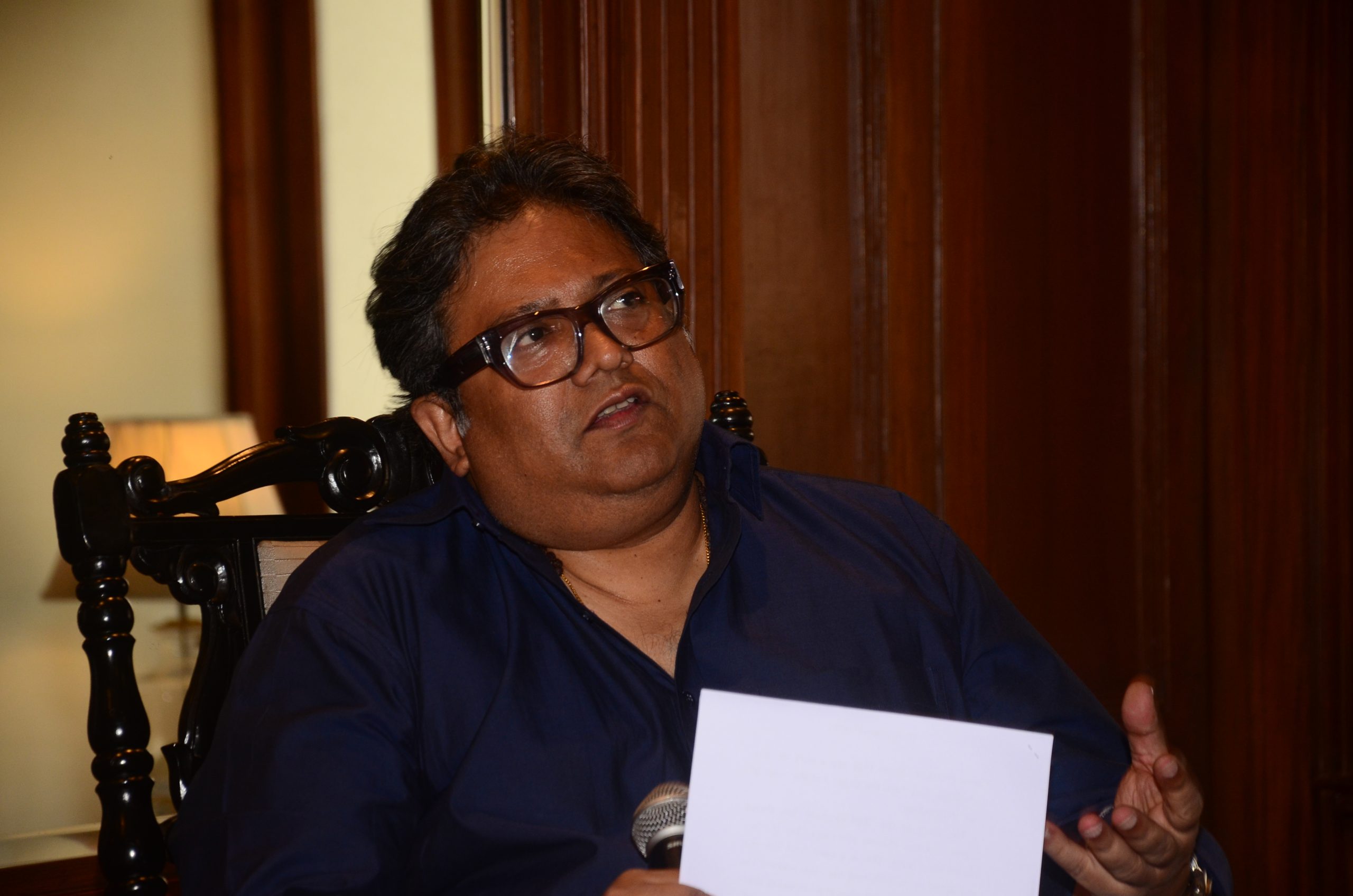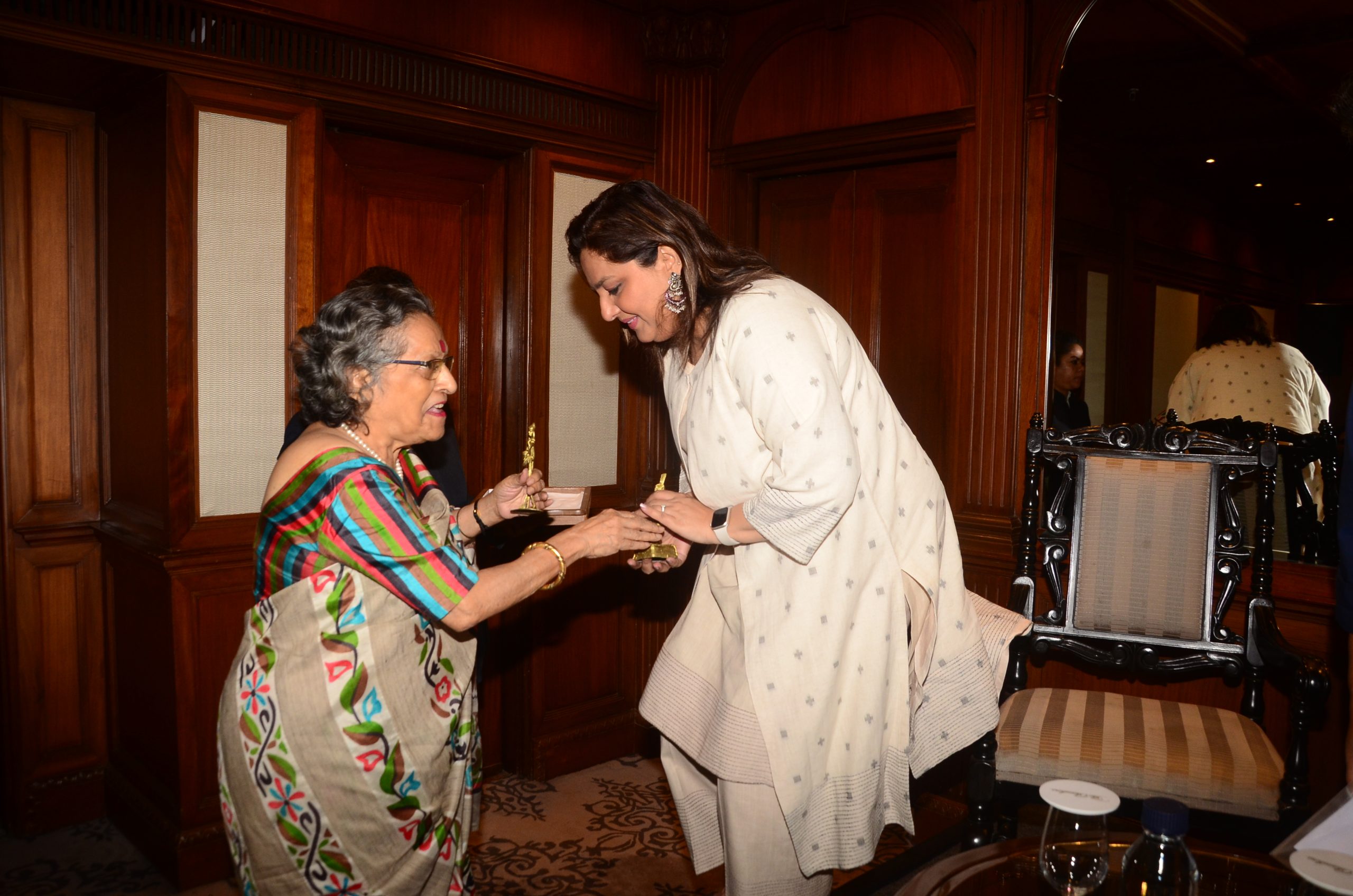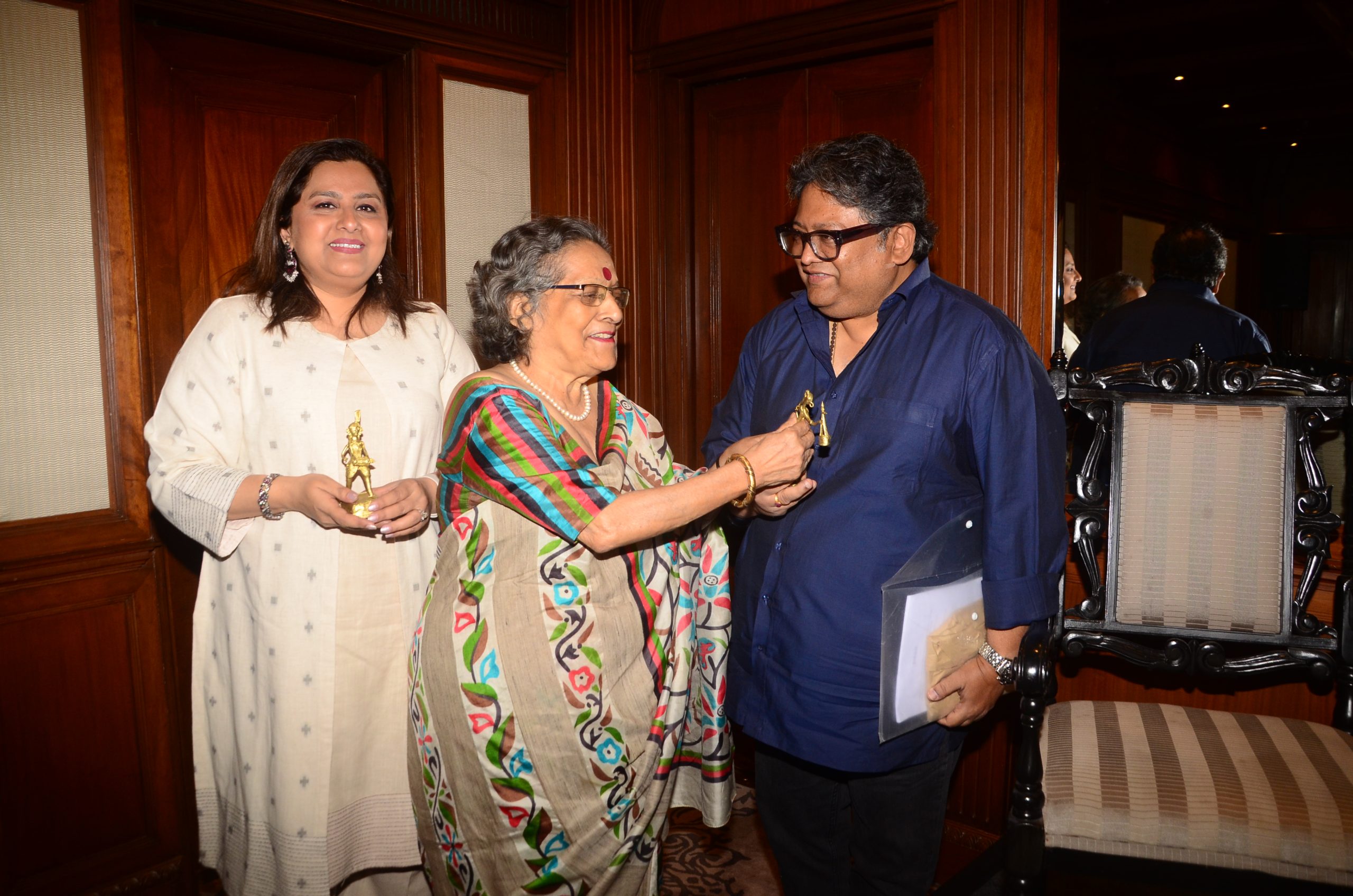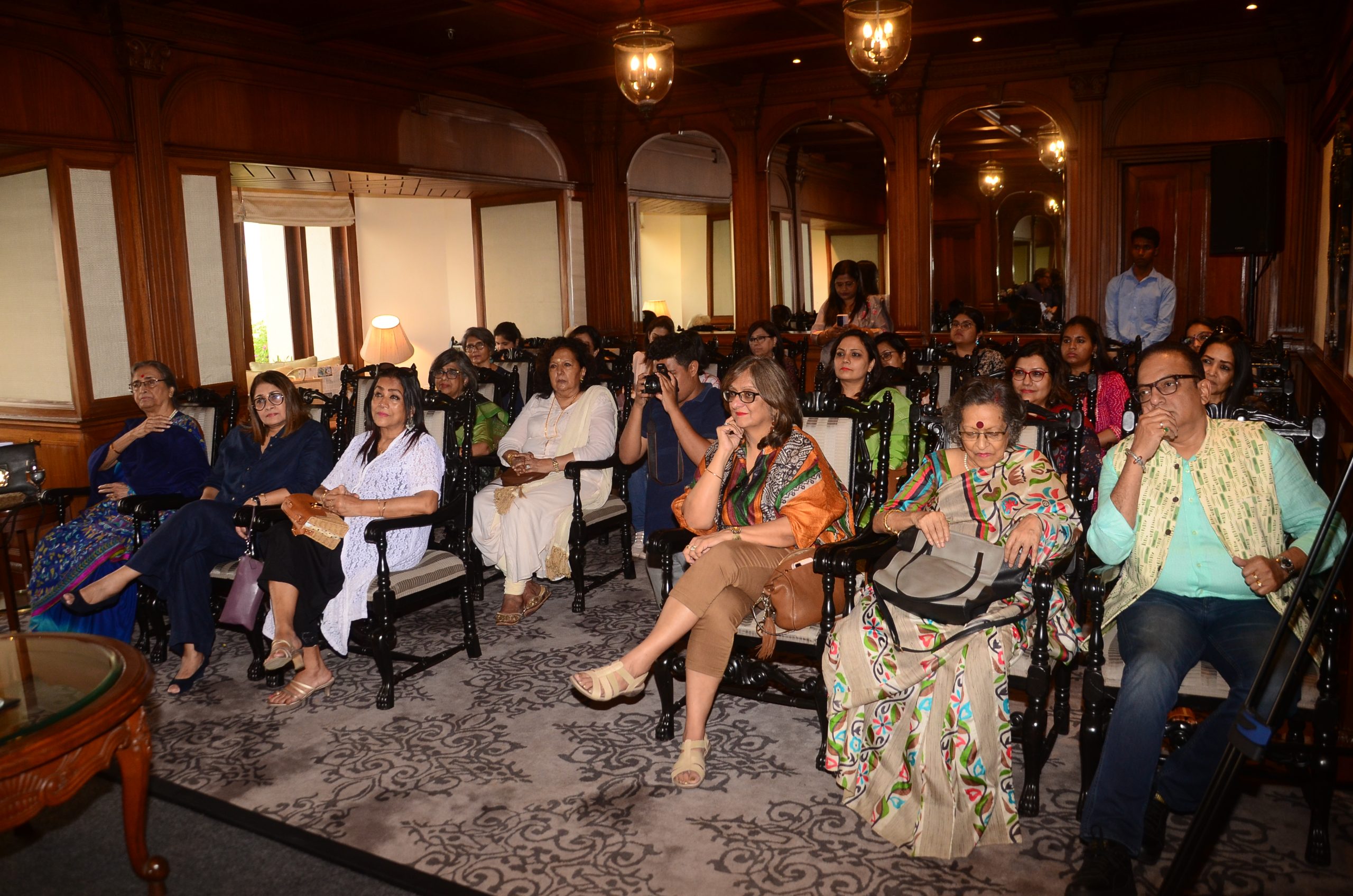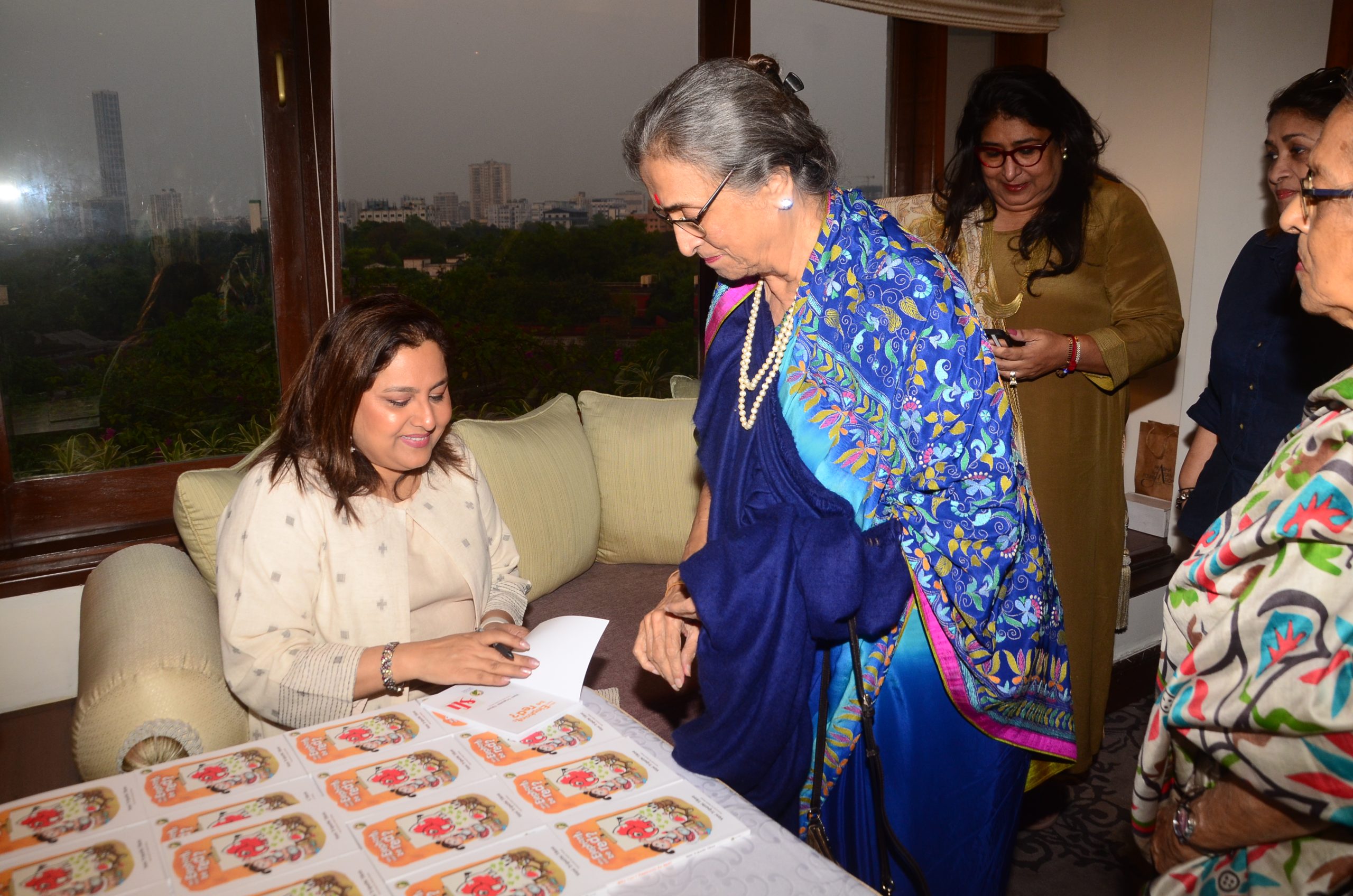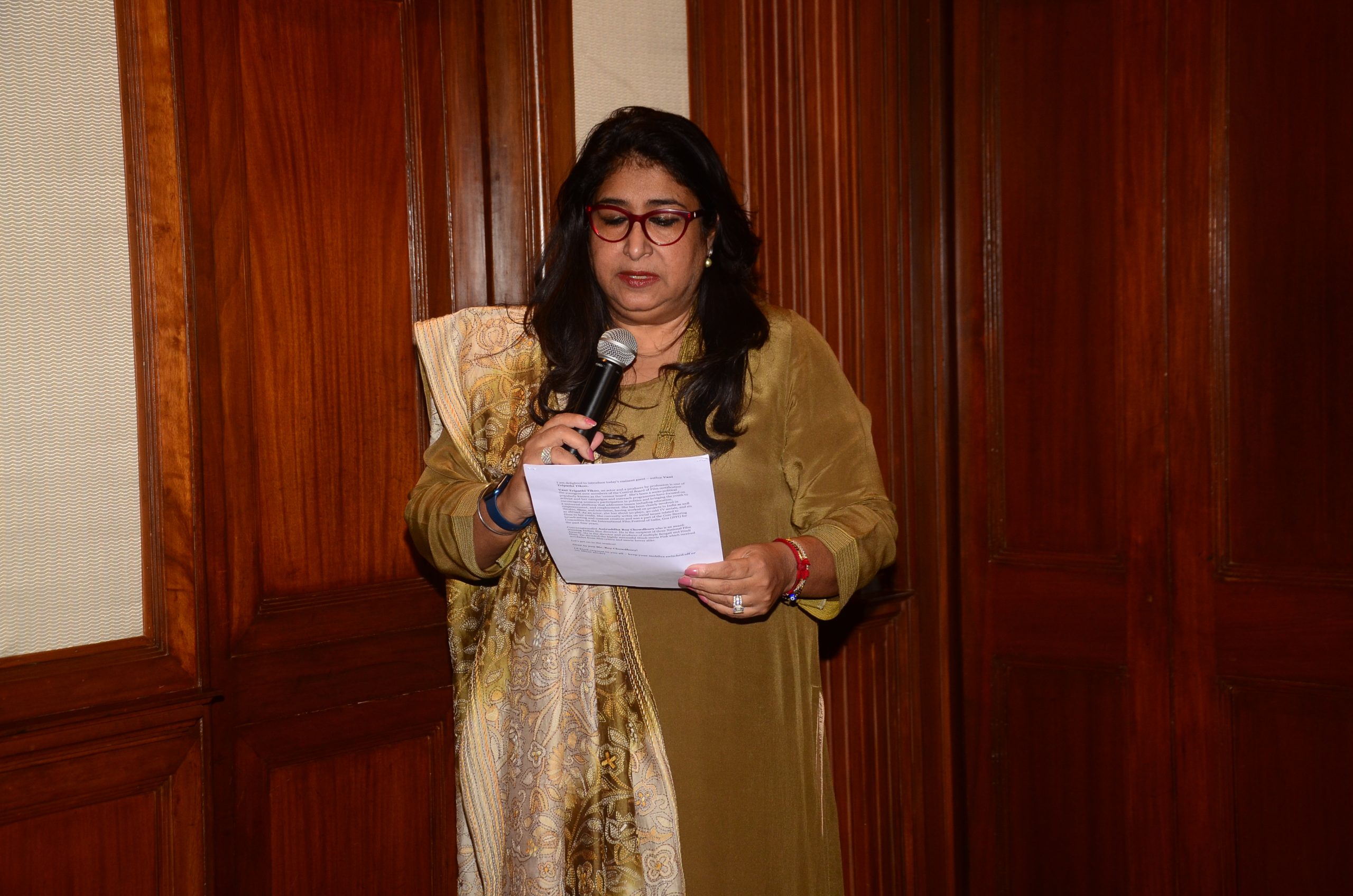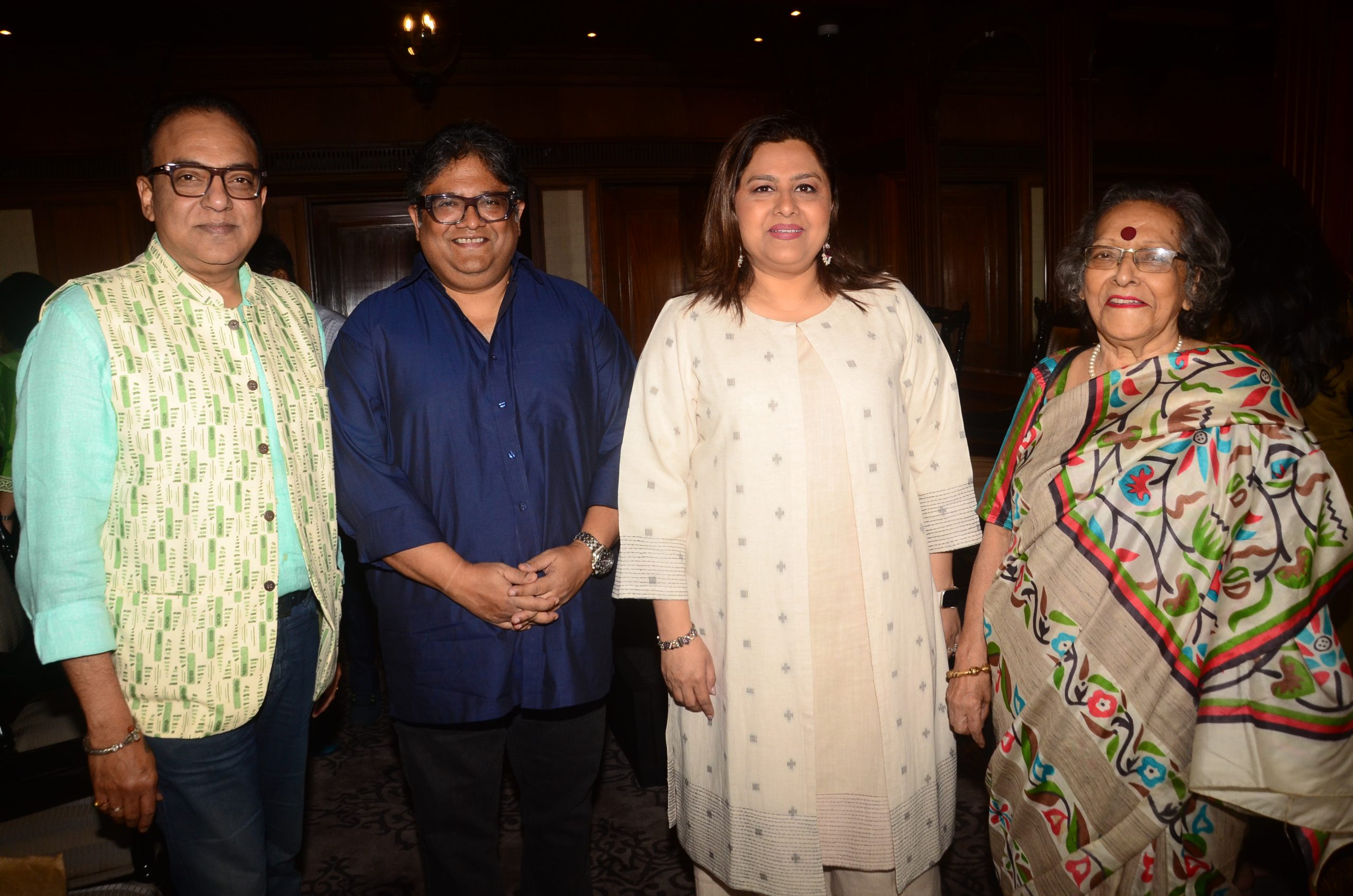Children possess the magical ability to let their imagination fly them to an unknown world. Their nascent dreams of escapades seem unrealistic in an adult’s world. Their minds are a creative powerhouse that adults often tend to slight. To celebrate young minds’ innate powers of imagination and observation, Prabha Khaitan Foundation organised a special session of An Author’s Afternoon at Taj Bengal with the actor and teacherturned-author, Vani Tripathi Tikoo, whose debut book, Why can’t Elephants be Red?, is an adventurous journey into the mind of a two-and-a-half-year-old little girl, Akku. In an enriching conversation with the national award-winning director, Aniruddha Roy Chowdhury, Tikoo underpinned our limitations in fathoming young minds and their countless narratives.
Malika Varma, Ehsaas Woman of Kolkata, introduced the author and the moderator. Responding to the felicitous introduction and Chowdhury’s praise, Tikoo commented, “Kolkata is a city I always love coming to because this is a space of storytellers.” She also spoke about the formative aspect of her creative self while living in a family of academics: “I grew up amid books. Katha vachan became an integral part of my existence very early in life. Theatre was an extension of the relationship I forged with the arts, thanks to my parents.”
Tikoo considers The Little Prince a gospel for all adults who want to step into the shoes of a child and explore the world through their eyes. She elaborated on adults’ myopic obsession with rigid boundaries of success and failure, boxing the imaginative realities of children.
Parents and teachers dumb down talents by heaping their unfulfilled dreams on children and constructing a world that reeks of competition and is pivoted to unyielding notions of accomplishments. Unfortunately, children’s identities are tied to their academic excellence. Chowdhury added that most parents tend to mould their children to resemble the exemplars of different fields, forcing on them a certain kind of sameness. Talking about stories like Jaishankar Prasad’s Madhua or Premchand’s Igdah that she revisits often, Tikoo pointed out how our preoccupation with the literature of the West takes us away from the indigenous tales that we inherit from our grandparents. From Chander Pahar to Sonar Kella, Bengal has an embarrassment of riches that we must preserve.
Why can’t Elephants be Red? offers readers a deep dive into the imaginative mind of Akku, who treats every new day as an adventure and sets loose her imagination to visualise red elephants, crabs with moustaches and unicorns without horns. Her book is a quest to anchor children to reality. The author spoke about the last play she enacted at the National School of Drama, Laal Laal Hathi, where children can see a red elephant, but adults cannot. What sowed the seeds of the book in her mind? “The book has a two-fold journey,” Tikoo explained. “One is Laal Laal Hathi, the other is very personal. My mother was ailing and bedridden during Covid, and I was with her in Delhi. My daughter, the protagonist of my book, was a two-year-old then, living away from me with her father and my in-laws in Singapore. Singapore shut down, and I could not visit her for the longest two years of my life. These twelve stories in my book are about people who put their lives on hold to care for my daughter. Writing about this little girl who empowered me and freed me from the guilt of being away from her was therapeutic.”
Digital content is preying on young minds, and more so in the wake of the pandemic that alienated children from each other and disrupted their ecosystem. The immersive realities are shoving kids into a vortex, causing identity formation to take a back seat. Tikoo considers lazy parenting to be at the root of this. While Chowdhury commented on the dearth of films about children because of the need to suit the imperatives of the entertainment industry, Tikoo mentioned that the time is ripe to tell stories for children through different art mediums because she believes “children save us from the perils of adulthood”. It is crucial to keep the streak of enquiry in a child’s mind burning bright. Furthermore, Tikoo added that we must not rob children of the simplicities of childhood. She read out a beautiful chapter from her book that is interestingly titled ‘I Love Art’. Varma delivered the vote of thanks and the senior film scholar and journalist, Shoma A. Chatterji, felicitated Tikoo and Chowdhury to conclude this fascinating trip through the alleys of imaginative young minds.

